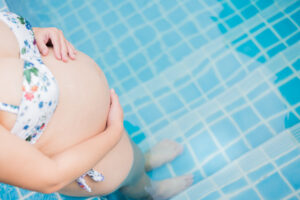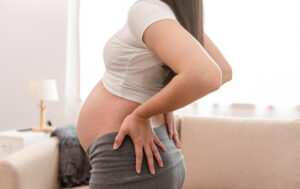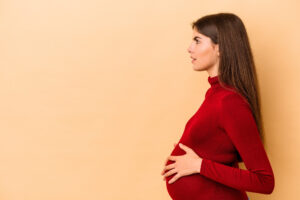Eating well during pregnancy is a priority, but there are certain foods to avoid – especially those that carry increased risk of infection or aren’t safe for the baby. These include deli meats (like ham, turkey and bologna), unless heated until steaming hot; and raw shellfish.
These foods can be contaminated with germs that cause infections like listeriosis and toxoplasmosis. They can also make the baby unwell and may lead to miscarriage or stillbirth.
Meat
Eating a healthy diet is especially important when pregnant. You should avoid foods that carry a risk of infection or contain substances that could harm your baby. This includes undercooked meat, like burgers and hot dogs, raw eggs and sprouts, and fish that may have high levels of mercury.
Instead, choose lean proteins like poultry and fish, low-fat dairy foods and legumes to help meet your increased protein needs. Be sure to drink plenty of water and avoid foods contaminated with germs like listeria, toxoplasma gondii and salmonella.
Fish
Eating fish is a “do” when pregnant since it provides heart-healthy omega-3 fatty acids (EPA and DHA), protein, iron, choline and other vitamins and minerals that foster healthy fetal and infant development. However, avoid raw seafood and sushi and skip anchovies, herring, sardines and other oily fish.
Avoid cold cuts and deli salads unless they are heated until steaming hot (this kills Listeria). Also, be sure that the soft cheese you eat is pasteurized. Bacteria can thrive in picnic and buffet foods that are not cooked well enough.
Dairy
During pregnancy, your baby needs lots of protein, calcium and iron. Lean meats like chicken, pork and beef are great sources of these nutrients. Yogurt is also a good source, and some varieties have probiotic bacteria that help your digestive system.
Avoid raw (unpasteurized) milk and cheese, as it may carry germs that can cause listeriosis, a dangerous pregnancy-related illness. Always cook hot dogs and deli meats to steaming. Avoid unwashed raw vegetables and fruits, as they can contain harmful bacteria. Also, limit caffeine to 200 mg a day, or two cups of coffee.
Alcohol
Women who drink alcohol during pregnancy can increase their risk of giving birth to a child with fetal alcohol syndrome. Alcohol and certain foods also may carry dangerous bacteria or parasites like listeria, E coli, and Toxoplasma gondii.
Raw salmon and deli meats can contain listeria and toxoplasma, which are dangerous for pregnant women. You should also avoid alfalfa, clover, or mung bean sprouts because they can be breeding grounds for bacteria. Cooked sprouts are safe, though. Also, choose pasteurized juices and avoid uncooked, fresh-squeezed juice.
Fruits
Fruits and vegetables are a crucial part of any healthy diet. Medical professionals often recommend 2 – 4 servings of fruits and 4-5 servings of vegetables each day.
Avoid eating raw meat, fish or eggs because they may contain germs that could cause food poisoning (listeriosis). Cooking them thoroughly kills the bacteria.
Watermelon is a good choice because it is rich in vitamin C, folic acid and potassium. Prune juice is also a good source of fiber and helps ease constipation that is common during pregnancy.
Vegetables
Vegetables are an essential part of any diet, especially during pregnancy. They are high in iron, fiber and vitamins. Eat them raw, cooked or in smoothies.
Avoid deli meats like bologna and hotdogs because they could contain bacteria that can cause listeriosis, which is dangerous for pregnant women and newborn babies. Only eat well-cooked pork and poultry, as well as soft cheeses that have been pasteurized.
Seafood is rich in omega-3 fatty acids, which are good for baby’s brain and eyes, but beware of some seafood that’s high in mercury. Check the seafood guides for safe options.
Breads
Eating a variety of healthy foods throughout the day will provide the vitamins, minerals and nutrients that you and your baby need.
Refrigerated deli meats, like ham and salami, and potato salad should be avoided because they may contain harmful germs, such as Listeria or Toxoplasma, which can cause miscarriage or other health problems in pregnant women.
However, a well-done cheeseburger or slice of pizza is okay if eaten in moderation. Breads, especially whole wheat and multigrain breads, are a good source of fiber and many essential nutrients for pregnant women.
Pastries
Pregnant women need starchy foods like breads, rice and pasta for energy. These foods also provide the minerals and vitamins that the baby needs.
Avoid deli meats that have been preserved with nitrates and nitrites, as they run the risk of carrying Listeria and the parasite Toxoplasma. The same goes for raw sprouts (alfalfa, clover and radish). They grow in warm conditions that are perfect for bacteria to thrive. Also, avoiding undercooked meats can reduce your risk of E coli and Salmonella. A well-cooked turkey sandwich is a safer choice.
Sweets
Pregnant women are at higher risk of foodborne illnesses because their immune systems are compromised. Harmful bacteria like Listeria and Toxoplasma gondii can cross the placenta and infect the fetus.
That means you may want to skip the deli meat at your favorite sandwich shop and stick with nitrate-free lunch meats at home. You’ll also want to avoid raw sprouts, which can harbor bacteria that can make you and your baby sick.
Moderation is key when it comes to dessert, but try to eat healthy snacks between meals instead. Limit empty calories such as soda and energy drinks.
Other Foods
Eating a well-balanced diet is important during any time of life, but it becomes even more essential when pregnant. While most foods are safe, some require special precautions during pregnancy.
Certain foods can harbor illness-causing bacteria like listeria, salmonella and E coli. These germs can also cross the placenta and harm your unborn baby. Luckily, most foodborne illnesses are preventable by eating thoroughly cooked meat, eggs, dairy, vegetables and fruit. Avoid raw sprouts and be sure to cook your eggs until both white and yolk are solid.





